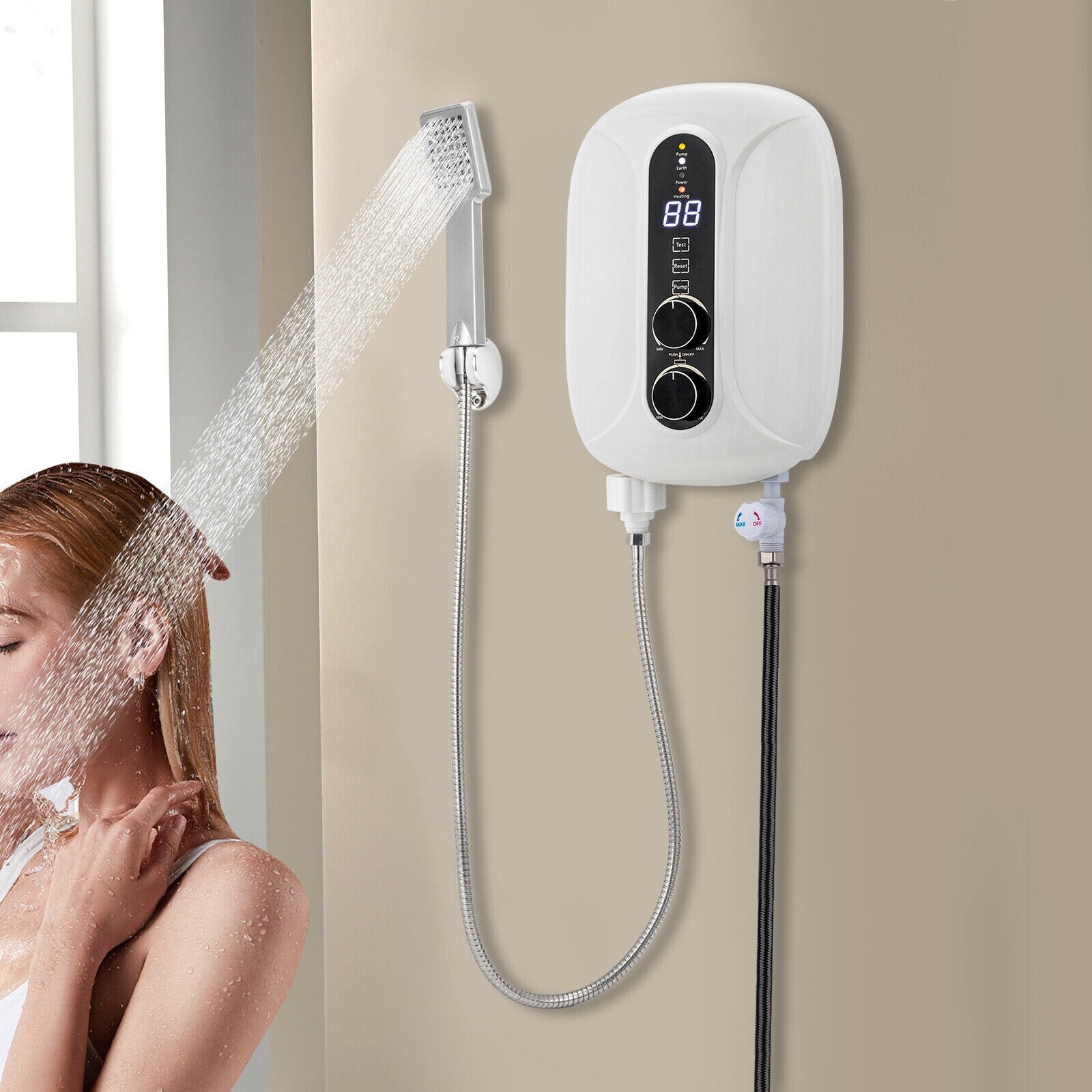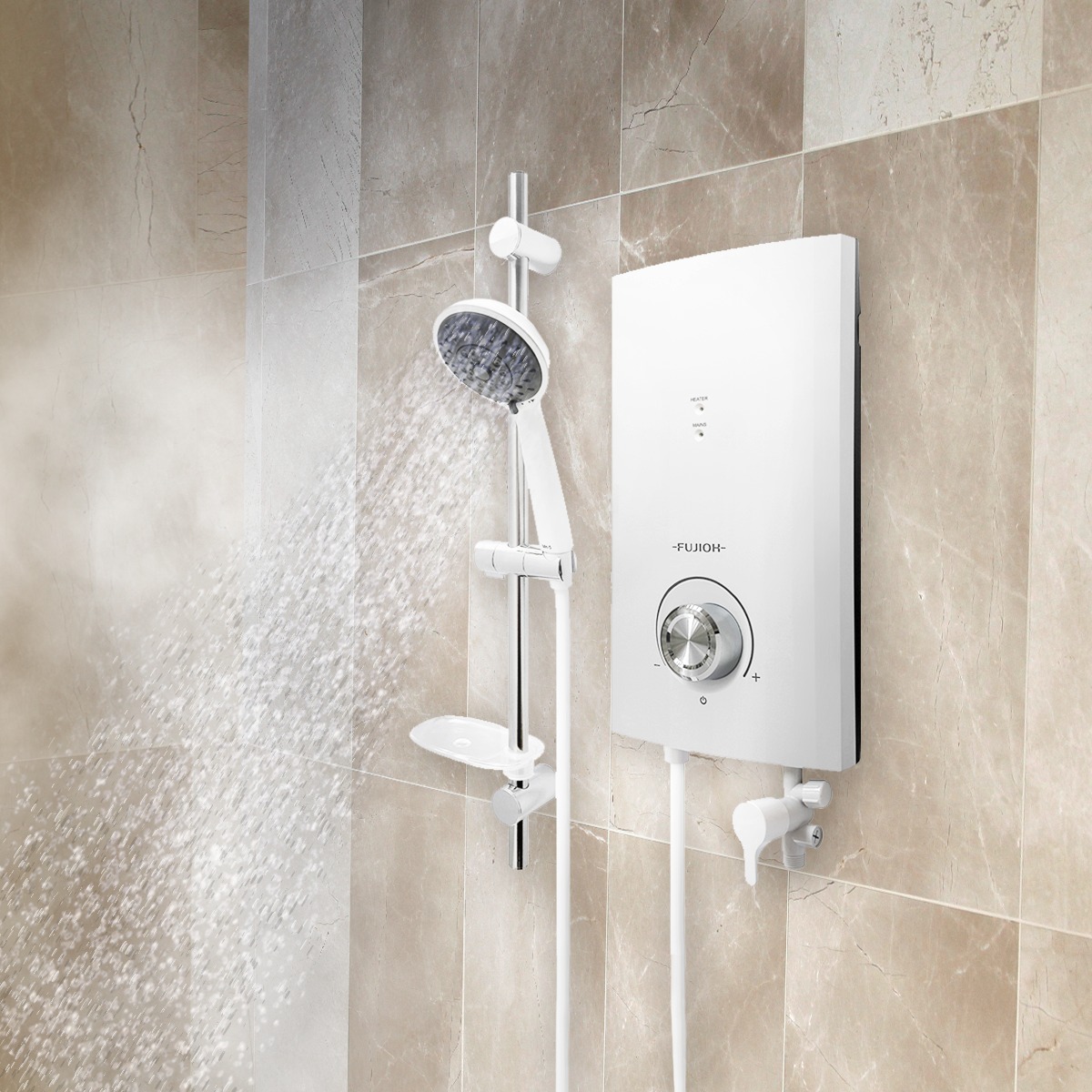Every person is bound to have their own perception involving Pros and Cons of Tankless Water Heater.

In a globe where ease and performance preponderate, it's not a surprise that house owners are frequently in search of smarter means to handle their home's energy intake and convenience. One advancement that has actually progressively obtained appeal is the tankless water heater. Yet what exactly makes these systems attract attention from the traditional tank-based versions the majority of us matured with? Allow's dive in and check out the advantages of tankless water heaters, assisting you decide if it's time to make the switch in your home.
Introduction
Photo this: you step into the shower after a long day, expecting a soothing cascade of hot water, just to be greeted by icy droplets since the last individual utilized everything up. Audio familiar? Typical hot water heater keep a set quantity of warm water, indicating you go to the grace of that storage tank's supply. Tankless systems, on the other hand, warmth water as needed. Say goodbye to going out mid-shower, say goodbye to fumbling with routines just to ensure warm water is available.
Recognizing Tankless Hot Water Heater
What Are Tankless Hot Water Heater?
Tankless water heaters, occasionally referred to as on-demand or instant water heaters, give warm water just as it's required. Rather than storing gallons of pre-heated water, these devices kick right into action the minute you switch on the faucet. Water passes through a warmth exchanger, heating up in real-time, suggesting you get a continuous circulation of hot water without the requirement for a huge tank sitting idly by.
Exactly how Do They Vary from Traditional Solutions?
Standard heaters hold a tank of warm water, making use of power to maintain that tank at a constant temperature level. Tankless units get rid of the standing supply, minimizing lost energy and the cumbersome impact of a huge cyndrical tube. Basically, you're upgrading from a "stockpile" attitude to a "made-to-order" strategy.
Usual Kinds Of Tankless Units
Tankless water heaters generally can be found in 2 selections: gas and electric. Gas models tend to provide higher circulation rates, suitable for larger households, while electric models frequently serve smaller homes and are typically less complicated to set up. Additionally, some systems are designed for point-of-use (offering one fixture) while others can deal with the whole home's warm water requirements.
Key Benefits of Tankless Water Heaters
1. Countless Warm Water Supply
Ever before had to arrange showers so everyone obtains their fair share of warm water? With tankless, that ends up being a distant memory. As long as the heater's flow ability isn't exceeded, you can take back-to-back showers without developing into a popsicle.
2. Energy Effectiveness and Price Savings
No more warming a titan tank's worth of water and maintaining it toasty all the time. Tankless heaters lower standby energy losses, which can reduce energy costs. While the preliminary expense may be higher, the long-lasting savings commonly validate the investment.
3. Space-Saving Style
If your home is short on storage, eliminating the large tank liberates important space. Tankless devices are small and can commonly be placed on wall surfaces, hidden in edges, or set up in tight energy closets without having all to oneself the entire room.
4. Longer Lifespan
A properly maintained tankless water heater can outlive its tank-based cousin. Standard tanks could last 10-15 years, while tankless models can maintain chugging along for twenty years or more, making them a strong investment over time.
5. Improved Water Top Quality
Storing water in a tank can sometimes cause debris accumulation or a somewhat "off" taste. With tankless systems, fresh water is warmed on the spot, decreasing the opportunities of sediment buildup and possibly using cleaner-tasting water.
Factors to consider Prior To Switching
Though the benefits are engaging, it's wise to think about a couple of variables before totally dedicating.
Preliminary Financial Investment Costs
Tankless heaters commonly include a higher in advance cost. Between the unit itself and prospective installation alterations, the preliminary price might offer you sticker label shock. However bear in mind to see it as a long-lasting investment.
Installation Requirements
Relying on your home's facilities, you might require added electrical ability or gas line upgrades. Guarantee you recognize the installation demands and talk to an expert to prevent shocks.
Examining Your Home's Water Use Patterns
If your family at the same time makes use of numerous fixtures with high warm water need, ensure the device's flow price fulfills your needs. Understanding your usage patterns assists you select the right size and type of tankless heating unit.
Upkeep and Treatment Tips
Tankless systems are fairly reduced upkeep, however they aren't set-it-and-forget-it home appliances.
Normal Cleansing and Descaling
Hard water minerals can accumulate in the warmth exchanger, impacting efficiency. Routine descaling (commonly suggested every year) keeps the unit performing at peak performance.
Annual Specialist Inspections
A yearly checkup from a specialist guarantees small concerns are caught early. They'll examine the device's performance, look for leakages, and aid keep optimum efficiency.
Making Certain Proper Ventilation
For gas designs, appropriate air flow is vital to securely remove exhaust gases. See to it airing vent systems are clean and properly installed to prevent any kind of potential safety risks.
Comparing Different Brands and Models
Not all tankless water heaters are produced equal.
Investigating Trustworthy Makers
Search for credible brand names with a history of generating top quality units. A reliable manufacturer frequently gives much better customer support and longer service warranties.
Checking Out Evaluations and Customer Comments
User reviews and feedback from neighbors or friends that have actually gone tankless can use important insights. Occasionally, real-life experiences can be much more informing than advertising and marketing pamphlets.
Installation: Do It Yourself or Expert?
While some homeowners relish dealing with projects themselves, tankless installment may not be the most effective time to burst out the tool kit.
Advantages and disadvantages of Do It Yourself Installment
A do it yourself install could save cash, but it includes dangers. Incorrect installation can result in inefficiency or safety problems. If you're handy and have experience, it might be possible-- but wage caution.
When to Call a Specialist Plumbing Professional
For a lot of, calling a professional makes sure everything's done properly. A professional plumbing technician recognizes regional codes, sizing demands, and airing vent specifications, lowering the threat of mishaps.
Optimizing Effectiveness
You have actually invested in a tankless device-- now maximize its efficiency.
Optimal Temperature Settings
Many people set their systems in between 120-140 F. Readjusting the temperature level can boost convenience and financial savings. Experiment to find a sweet spot that doesn't squander energy.
Pairing with Low-Flow Fixtures
Want to stretch your unit's capabilities? Think about mounting low-flow showerheads and faucets. They reduce water use, permitting your tankless system to provide a steady stream of hot water without stressing.
Environmental Effect
Tankless water heaters line up with greener living objectives.
Reduced Carbon Footprint
By utilizing less energy and only home heating water as required, tankless systems can decrease your home's carbon footprint, decreasing your ecological impact.
Conserving Natural Resources
Less energy consumption and less lost hot water translate into fewer natural deposits being used, an environmental win-win.
Who Profits A Lot Of from Tankless Heating systems?
The beauty of tankless heating units is that they can match a selection of households.
Large Households vs. Solitary Passengers
Large families could enjoy the endless hot water supply, while single passengers value the power financial savings from not heating up an entire storage tank for simply one person's early morning shower.
House Owners with Minimal Room
If your home is short on square video, shedding the large storage tank maximizes space for other basics-- or perhaps simply extra breathing space.
Eco-Conscious Consumers
Going tankless aligns with eco-friendly worths, ensuring you're not squandering energy or resources.
Future Fads in Tankless Hot Water Heater
The globe of home appliances is ever-evolving, and tankless hot water heater are no exception.
Smart Home Assimilation
Visualize changing your water heater's temperature level through an application or obtaining upkeep informs on your phone. As clever home tech breakthroughs, we'll see more connection and benefit.
Innovations in Technology
R&D is frequently improving warm exchangers, making systems a lot more effective and resilient. Future versions could be even quieter, a lot more small, and far better suited for differing climates.
Conclusion
Picking a tankless hot water heater is more than just upgrading your home's warm water system; it's investing in long-lasting convenience, power efficiency, and a greener way of living. By considering your household's water use, bearing in mind installment requirements, and devoting to regular upkeep, you can delight in a steady stream of warm water without the baggage of a bulky tank. As technology advances, you can eagerly anticipate even smarter, much more efficient tankless options that not just make your life simpler yet also benefit the planet.
Why You Should Consider a Tankless Water Heater for Your Home
Energy Efficiency and Cost Savings
Tankless water heaters, also known as on-demand water heaters, heat water only when needed. This means they don't waste energy keeping a tank of water hot constantly. This efficiency translates into substantial cost savings on your monthly energy bills.
Endless Hot Water Supply
One of the significant advantages of tankless water heaters is their ability to provide a continuous supply of hot water. Traditional tank water heaters have a limited capacity and can run out of hot water, especially during peak usage times. In contrast, tankless water heaters can provide an endless stream of hot water, making them ideal for larger families or homes with high water usage.
Space-Saving Design
Tankless water heaters are compact and take up significantly less space compared to traditional tank heaters. They can be installed on walls, under cabinets, or even outside, freeing up valuable space in your home. This makes tankless water heaters a great option for smaller homes or properties with limited space for a traditional water heater.
Longer Lifespan and Lower Maintenance
Tankless water heaters typically have a longer lifespan compared to traditional tank heaters. They can last up to 20 years or more with proper maintenance. Additionally, tankless systems are designed with replaceable parts, which can extend their lifespan further and reduce long-term maintenance costs.
Environmentally Friendly
Reducing energy consumption not only saves you money but also benefits the environment. Tankless water heaters contribute to a smaller carbon footprint by using less energy to heat water. Their energy efficiency and ability to minimize standby heat loss make them an eco-friendly choice for environmentally conscious homeowners.
Customized Temperature Control
Tankless water heaters offer precise temperature control, allowing you to set the desired temperature to meet your specific needs. This level of customization ensures you always have water at the perfect temperature for your comfort and usage requirements.
https://beantownservices.com/blog/consider-tankless-water-heater-for-your-home

I came across that blog post on Unveiling the Hot Trend: The Benefits of Tankless Water while exploring the internet. Enjoyed reading our posting? Please share it. Let someone else discover it. Many thanks for your time spent reading it.
Click Here